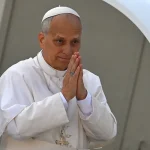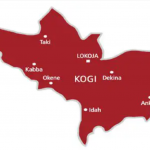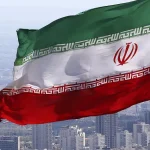I was proud to arrive in Nigeria and begin my third ambassadorial posting last November. 2020 will long be remembered as the year of the pandemic COVID-19, and we will look back and honor the lives of the more than 1.5 million people worldwide who lost their lives to this vicious pandemic. 2020 also marked 60 years of bilateral diplomatic relations between the United States and Nigeria, and much has been accomplished over the course of that time as democracy and a free and open business environment continue to grow. Allow me to provide a bit more detail about the accomplishments achieved with our Nigerian partners.
The international community came together in times of a health crisis. Over 60 members of the U.S. Mission in Nigeria – from the Centers for Disease Control (CDC), USAID, and the U.S. Department of Defense’s Walter Reed Army Institute of Research – stood side by side with Nigerian counterparts at the National Center for Disease Control, Presidential Task Force and Nigerian military to strategize, plan, and effectively implement treatment of Nigerian citizens over the past nine months. In 2020, the United States provided more than $73 million in assistance for the COVID-19 response. This includes the delivery of 200 ventilators pledged during a conversation between Presidents Buhari and Trump in April, epidemiological COVID detection surveys, technical assistance, and service plans.
I whole-heartedly congratulated Nigeria in August for attaining a wild polio virus-free status and recognized that no country could have achieved this great feat without the support of its partners. This effort, buttressed by the Centers for Disease Control and USAID investments of approximately $220 million dollars combined over the last eight years, demonstrated the dynamism of state and local activities to strengthen surveillance, join in polio campaigns, create polio outbreak response plans, and encourage routine immunization.
The President’s Emergency Plan for AIDS Relief (PEPFAR) enrolled its one-millionth Nigerian patient this year. Our team has been engaged in a year-long surge activity that is now enrolling 6,000 new patients per week across the country. The National AIDS Indicator Survey (NAIIS) armed us with the data we needed to target the disease more effectively. We are doing just that with our partners at the Nigerian AIDS Control Agency, state governors, health commissioners, and State AIDS Control Agencies, and the Ministry of Health. Together, we are identifying patients, providing them life-saving treatment, and suppressing their viral loads to levels that can no longer transmit the disease. We are within reach of an AIDS-free generation after twenty years of sustained commitment.











